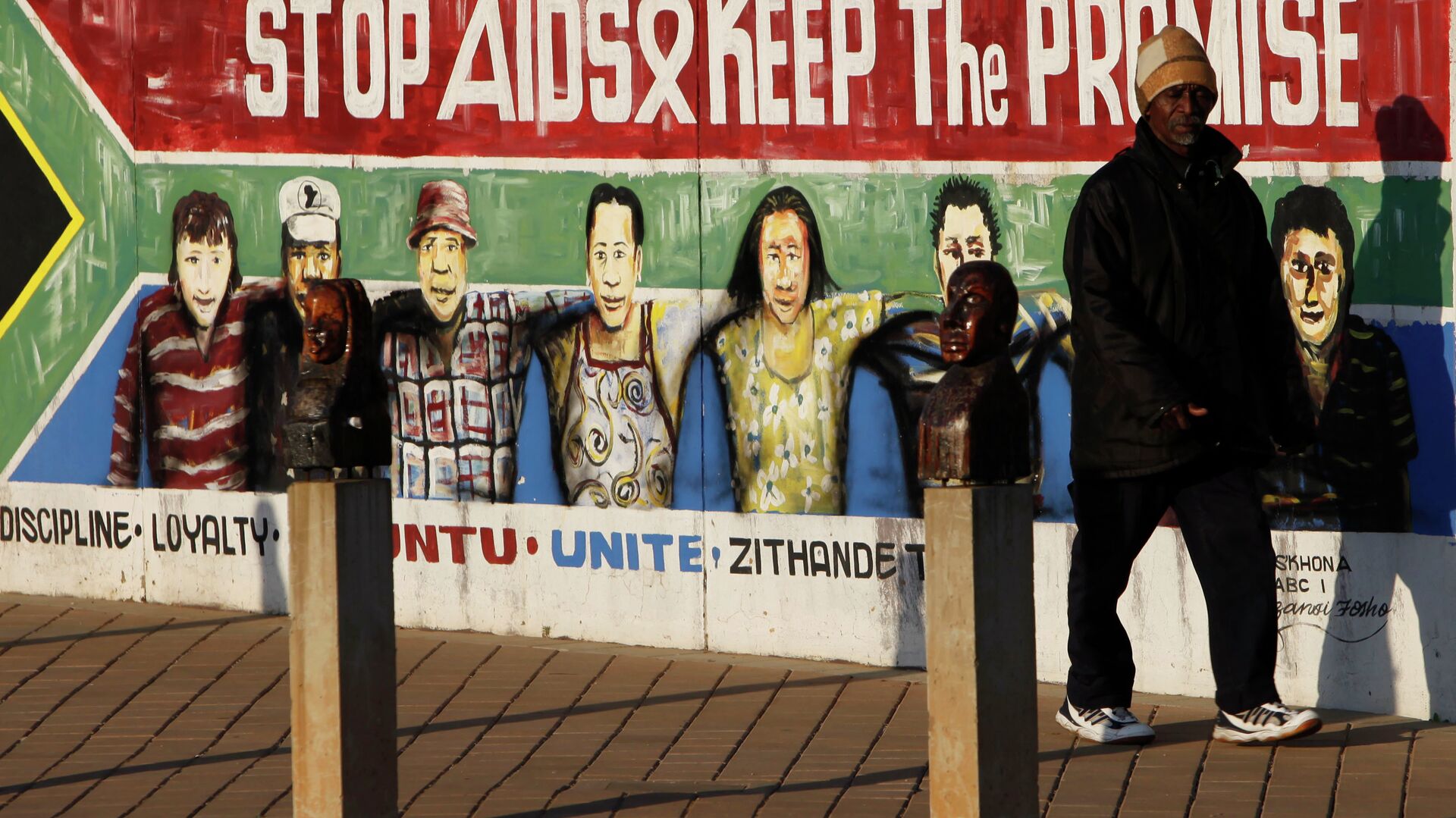US Senate Confirms Africa CDC Chief John Nkengasong as Global AIDS Coordinator

© AP Photo / Denis Farrell
Subscribe
Addressing the COVID-19 pandemic in the Third World has faced many of the same challenges as addressing HIV/AIDS, namely, the steep price of high-quality drugs and the intellectual property rights preventing cheaper alternatives from being made outside of richer countries.
Dr. John Nkengasong, the former head of the Africa Center for Disease Control and Prevention, has been confirmed as head of Washington’s public health program aimed at fighting HIV/AIDS.
The Senate voted on May 6 to make Nkengasong the next US ambassador-at-large and coordinator of the President’s Emergency Plan for AIDS Relief (PEPFAR), as well as other efforts to stem the spread of Human Immunodeficiency Virus (HIV), the virus that causes Acquired Immunodeficiency Syndrome (AIDS), around the globe.
Nkengasong will also work closely with his old agency, UNAIDS, to tackle the epidemic outbreak, especially in Africa.
“This is great news for the world. John Nkengasong is an inspired choice to lead PEPFAR,” Winnie Byanyima, executive director of UNAIDS, said in a Friday news release.
“He is one of the world’s leading experts on HIV and pandemic preparedness and has practical experience on how to advance efforts to end AIDS amidst the COVID pandemic. We need the kind of bold thinking and commitment that he has brought throughout his career,” she added.
African Health Leader
Before his confirmation, the Cameroonian virologist was the first head of the Africa Center for Disease Control and Prevention (Africa CDC) after its formation by the African Union in 2016. When the COVID-19 pandemic broke out in 2020, he became a special envoy to Africa for the secretary-general of the World Health Organization (WHO), the UN-connected global health agency, and coordinated Africa’s COVID-19 response.
Writing in Nature in 2019, just months before the COVID-19 pandemic began, Nkengasong argued that African nations needed to buttress their national public health institutions (NPHI) and empower local leadership in order to head off future disease outbreaks.
“Waiting for emergency help from the West costs lives, health and resources,” Nkengasong wrote. “African leaders are starting to take ownership of investments in their citizens’ health, but fewer than 15 countries on the continent currently have institutions that can perform the functions of an effective NPHI, such as disease surveillance linked with a diagnostic laboratory, and the capacity to activate a rapid-response team for outbreaks and serve as an operation center in public-health emergencies.”
PEPFAR was started in 2003 by then-US President George W. Bush, and since then the US has pumped more than $100 billion into research, education, and resource distribution aimed at preventing the spread of HIV and developing effective treatments - or even a cure - for the disease.
Spread of a Deadly Virus
According to WHO statistics, HIV has killed between 27 and 49 million people globally since the first outbreak was detected in 1981 in the United States.
While the US was the early center of the outbreak, by the late 1990s it had shifted to Africa. In 2020, there were between 30 and 45 million people living with HIV, more than two-thirds of whom were in Africa. That year, between 480,000 and 1 million people died of AIDS complications and 1 to 2 million people became newly infected by HIV.
The virus is spread by bodily fluids, most commonly through sexual intercourse or by sharing implements, such as needles. HIV can take some time to take effect, but when it does, it attacks the victim’s immune system, degrading their body’s natural defenses and making even a slight infection potentially deadly - a condition called AIDS. Early research and treatment for AIDS was lacking because of social stigmas against its primary victims: gay and bisexual men and transgender women.
Since the mid-1990s, effective antiretroviral drug cocktails have been developed that can suppress an HIV infection, but which are extremely expensive - and thus unavailable to poor people anywhere on the globe, but especially in Africa. More recently, pre-exposure prophylaxis (PrEP) drugs have been developed that can block HIV infection, but are similarly prohibitively expensive.
As a result of their price, treatment that existed was not available in Africa for years after its development, and the annual death rate from AIDS complications did not reach its zenith until 2006, when 2.9 million people died from AIDS complications in that year alone. As happened during the COVID-19 pandemic, powerful social movements arose to demand waivers for international agreements protecting patents for the necessary drugs, which were opposed by Western pharmaceutical giants. This situation, in part, led to the creation of PEPFAR.
In 2020, 73% of those infected with HIV were receiving antiretroviral therapy, according to the WHO. UNAIDS has set a goal for 2030 known as “95-95-95”: 95% of people with HIV know their status; 95% of people with HIV are receiving treatment; and 95% of people receiving treatment are achieving viral suppression using PrEP.


